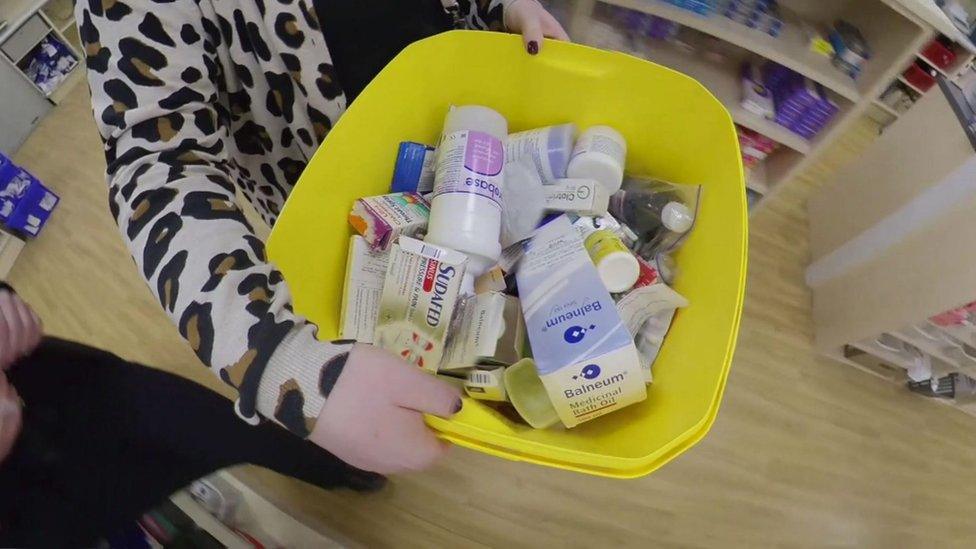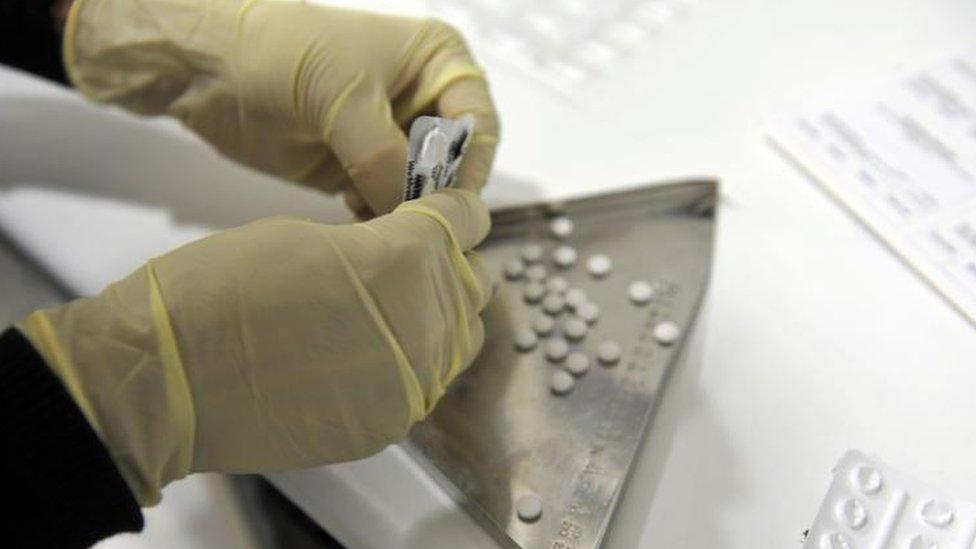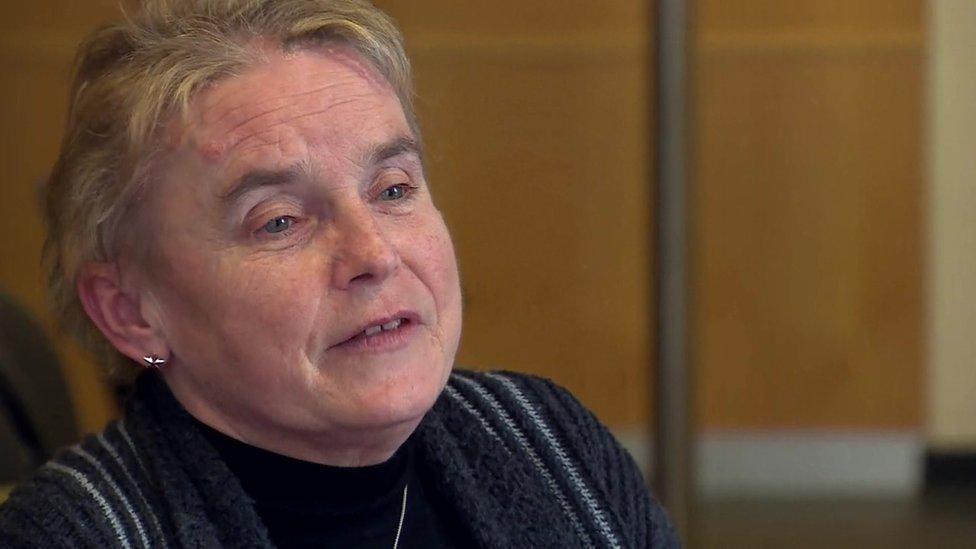Pharmacists call for regular reviews of medicines
- Published

Patients handed in large amounts of unused drugs during an amnesty in Harrogate
Patients are being encouraged to have regular medicine reviews with their pharmacist or GP.
The Royal Pharmaceutical Society (RPS) says this could improve patient care, cut waste and save the NHS money.
It says reviews are especially important for those who are taking 10 or more different medications.
These can sometimes work against each other or cause unpleasant side-effects, which leads people to stop taking them.
The use of many different medications - known as poly-pharmacy - is particularly common in older people, as they live with various long-term conditions, from arthritis to high blood pressure.
Each drug will have been thoroughly tested, but only in isolation rather than in combination with other medications.
It's not uncommon for older patients to have been prescribed 10 or 20 or more medicines.

These drugs can interact with each other in unpleasant or even harmful ways.
Prof Ash Soni, a community pharmacist and RPS president, said: "What we have today is patients who are taking lots and lots of different medicines and the consequence of that, the way they mix, is you get different interactions, different side-effects, different adverse reactions, different things that may make you feel unwell.
"They may not be working ideally together, they may be working against each other slightly.
"So it's about seeing how do we make sure the medicines you're taking all work together for you," he said.
Medicines amnesty
The RPS wants to see regular medicine reviews, perhaps every six months, for patients who are prescribed 10 or more drugs.
But drugs that don't agree with patients can also end up being wasted.
So in Harrogate, in North Yorkshire, they have launched what they are calling a "medicines amnesty", where out-of-date, unused or unwanted drugs are handed back to the GP surgery or pharmacy.
After only a few days, staff have filled several big tubs with pills, lotions and gels that have been handed in.
Local medicines manager Chris Ranson tells me that one patient even produced enough unused drugs to fill four bin bags.
"It's approximately five or six months' worth of medication that the patient hasn't been taking routinely.
"If patients aren't taking their medicines as prescribed then potentially they're not going to get the best outcomes from the medication."

Yvonne Fisher takes 14 different medicines every day
In Harrogate, the local Clinical Commissioning Group spends around £25m on medication each year.
A saving of just 1% would mean an extra £250,000 that could be spent on local health services.
But the medicines amnesty in Harrogate is not just about saving money.
It also presents an opportunity to offer patients a review of their prescription.
Tablet timings
GP Dr Sarah Craven has done just that with patient Yvonne Fisher, who takes 14 different medicines every day.
"It's very important for patients to know that GPs or pharmacists can review medications as a whole, and ask the patient how they are managing.
"We can look at whether they are managing to remember the tablets, sometimes we can change how we prescribe the tablets, change the timings of the tablets or the type of medication, so the medications get used in the way they were designed."
And Prof Soni says regular medicine reviews offer an added benefit to the wider NHS, which spends around £20bn each year on medication.
"We know that 8% of hospital admissions are medicine-related, 30% to 50% of medicines are not taken in the way they were intended.
"So these things are all designed to help you as the patient get the best from your medicine."